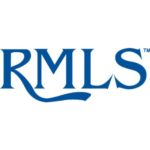Managing the Transaction
Steps of a Standard Transaction
Once Buyer and Seller have reached mutual agreement on the terms of an offer, the offer is deemed “accepted.” All of the timelines outlined in the sales agreement begin the first full business day after both parties have accepted and signed the agreement. A “business day” is considered to be Monday through Friday, with the exception of any state or federally recognized holidays.
Once escrow is opened, the buyer typically deposits their earnest money with their title company. The Escrow Officer follows the terms of the purchase agreement and the requirements of the lender. Escrow cannot be completed until the terms and conditions of the agreements have been satisfied, and all parties have signed the escrow documents. After all parties have signed, the Title Company will record the necessary documents, such as deeds and mortgages, in the local county land records office. The Escrow Officer will then release the deed and money according to the instructions of both buyer and seller.
Buyer Financing Contingency
The Buyer must be able to secure and show proof of specific financing from a lender. This contingency states that in order to enter into a purchase contract, the Buyer must qualify for financing. It also states that the home they are purchasing must appraise at value.
Failure of Financing Contingency
If Buyer receives actual notification that any financing contingencies have failed, the Buyer must promptly notify the Seller. The parties then have 2-5 business days following the day of Seller’s receipt of such notification to determine next steps. The possible next steps are:
- Terminate the transaction by signing a Termination Agreement (OREF-057) or such other similar form as may be provided by escrow.
- Reach a written mutual agreement upon such price and terms that will allow the transaction to continue. Neither Seller or Buyer is required to reach such an agreement.
If neither (a) nor (b) occurs within the time period identified, the transaction automatically terminates and all earnest money is promptly refunded to the Buyer. Buyer understands that upon termination of the transaction, Seller has the right to immediately place the property back on the market for sale upon any price and terms that the Seller determines.
Buyer’s Responsibility Regarding Financing
By signing the Sales Agreement, the Buyer is making the following legal representations to the Seller:
- Buyer will submit a completed loan application to their lender for purchase of the property no later than 3-5 business days after the date of the mutually signed sales agreement.
- Buyer will complete all necessary paperwork in a timely manner and exercise best efforts (including payment of all application, appraisal and processing fees) needed to obtain the loan.
- Buyer will order the lender’s appraisal no later than expiration of the Inspection Contingency Period in Section 10 of the Agreement, or if the Professional Inspection Addendum (OREF-058) is used, the expiration of the Inspection Period.
- Buyer has liquid and available funds for the earnest money deposit and down payment sufficient to close the transaction. The Buyer is not relying upon any contingent source of funds (e.g., from loans, gifts, sale or closing of other property, 401K disbursements, etc.), unless outlined in the Sale Agreement.
- Buyer authorizes the lender or mortgage broker to provide non-confidential information to the Seller regarding the Buyer’s loan application status.
- Buyer agrees to notify Seller if, after signing this Agreement, Buyer substitutes another Lender for any reason. Buyer is not permitted to select a Loan Program different than the one selected in Section 4B of the Sales Agreement, without Seller’s advance written consent.
- Buyer agrees to keep Seller informed of all other developments regarding Buyer’s financing and the timing of Closing.
Inspection Contingency Period
Once an offer has been accepted and signed by both parties, the Buyer typically has 10-12 business days to complete all inspections and negotiate any repairs with the Seller. This is known as the inspection period. (Refer to your sales agreement for the exact timeline.) If a Buyer is dissatisfied with the condition of the home in any way, they can terminate the transaction at any time during this 10-12 day period. In order to terminate, the Buyer must submit their unconditional disapproval of the property based on the findings of the inspection report. Once the unconditional disapproval is signed and submitted, all earnest money deposits are to be promptly refunded, and the transaction officially terminated. If an unconditional disapproval is not submitted by 5 pm of the final day of the inspection period, the Buyer is considered to have accepted the condition of the property.
Negotiating and Completing Repairs
After reviewing the inspection report, the Buyer’s agent will communicate any concerns the Buyer may have along with the findings. Bids are often obtained for necessary repairs. These repairs will be listed in a document known as a ‘repair addendum’ and submitted to the Seller. Buyer and Seller will then, through the mediation of their respective agents, negotiate the necessity of and responsibility for these repairs. If Buyer and Seller cannot negotiate a repair agreement prior to the end of the inspection period, it may be necessary to extend the inspection period with an additional written addendum.
Completion Date for Repairs/Corrective Action
A mandatory completion date for any negotiated repairs will be identified in the repair addendum. The Buyer will then have 2-5 days to complete a re-inspection, ensuring all repair work is completed and satisfactory. The repair addendum also states that all repairs requiring the use of a contractor (e.g., any electrical, HVAC, plumbing, or similar specialty work) are to be performed by Oregon licensed and bonded contractors in accordance with all applicable laws, codes and ordinances.
Final Walkthrough and Verification of Repairs
Once the Buyer’s agent receives notification that all repairs have been completed, the Buyer is able to walk through and verify the repairs and the condition of the house. Depending on the extent of the repairs, Buyers may opt to do a re-inspection with the original inspector for a fee. All electrical wiring, heating, cooling, plumbing and irrigation as well as the overall state of the structures and the land, must remain in similar condition until the Buyer takes possession of the property.
The Seller’s Property Disclosures are used by the Seller to disclose to a Buyer all known adverse material facts related to the physical condition of the property that are not readily observable. It is the Seller’s obligation to disclose these issues, and it is the Buyer’s responsibility to be completely aware of past problems before signing the final documents. Sellers must deliver the property disclosures no later than 5 days after an offer is accepted. If the Sellers fail to do so, the Buyer can terminate the agreement.
Once the property disclosures are delivered to the Buyer, the Buyer has 5 days to review and respond. In some cases, additional information may need to be requested. If anything disclosed makes the property undesirable to the Buyer, the Buyer may terminate the transaction and receive a full refund of their earnest money.
Once an offer is mutually accepted and escrow has been opened the title company will deliver a Preliminary Title Report to all parties involved in the transaction. “A Preliminary Title Report is a dated formal report that sets out in detail the conditions under which a policy of title insurance would be issued on a particular parcel of land. Its sole purpose is to facilitate the issuance of the policy.”
The report includes the matters which would be shown as exceptions in a policy of the title insurance so all parties in the transaction are aware of any records that may need to be cleared prior to the closing of the transaction.
Those matters shown in the report are:
- The estate or interest covered.
- The record owner of the estate or interest.
- A legal description of the parcel of land covered.
- Requirements and Notes
- The easements, liens, encumbrances and other matters which affect the title to the land at the date and time of the report.
Click Here to be directed to Ticor Title’s “How to Read a Preliminary Title Report”
Once received you’ll have a set number of days based on your mutually accepted sales contract, most commonly 5-10 business days, to review the report and notify the Seller, in writing, of any matters disclosed that are unacceptable. If the property is subject to special items, or if there are issues on the title that could affect homeownership, it’s best to understand them thoroughly before closing.
If, upon receipt, the Report and Documents of Record are not fully understood, the Buyer should contact the title insurance company for further information or seek competent legal advice. The Buyer’s and Seller’s Brokers are not qualified to advise on specific legal or title issues. However, we are happy to help connect you with your title company and/or a qualified professional so your questions can be answered thoroughly.
A home appraisal is an unbiased estimate of the fair market value of a home. The bank or lender will order an appraisal to be completed by a licensed appraiser and this will determine the value of a property. More importantly, it will determine whether the home’s contract price is appropriate, given the home’s condition, location and features. Lenders want to ensure that homeowners are not over-borrowing for a property, since the home serves as collateral for the loan.
The result of the appraisal will determine how much a lender is willing to give a buyer to purchase a property. The cost for the appraisal is typically around $550 and is paid for by the buyer. Ordering an appraisal can take several weeks and it is often advised to order an appraisal as soon as the inspection contingency has been satisfied. If the buyer waits too long to order an inspection, the date of closing can be delayed. Your broker will work closely with your lender to ensure proper timing for the appraisal.
Several days before signing, Buyers should schedule a final walkthrough of the property with their broker. During this walkthrough, the Buyer will ensure all negotiated and included personal property is onsite and in proper condition, the home and property are in acceptable condition, all negotiated Seller repairs have been completed as agreed upon, and that the home will be ready by the possession date.
After all the paperwork has been signed, recording has taken place and funding dispersed, the Seller will deliver possession of the property to the Buyer. The pick up or delivery of keys are coordinated by the Real Estate Brokers involved in the transaction.
Legacy Real Estate Brokers strive to be your guaranteed Real Estate Broker, For Life. We take pride in serving our community, which includes you and your friends, family, and anyone you recommend, looking for real estate services. We value our clients and always appreciate repeat clients, as well as referral partners.
Our Toolbox
Our brokers are equipped with an advanced toolbox to ensure we provide a high-level and smooth transaction experience for our clients. Some of the tools that we use include:










